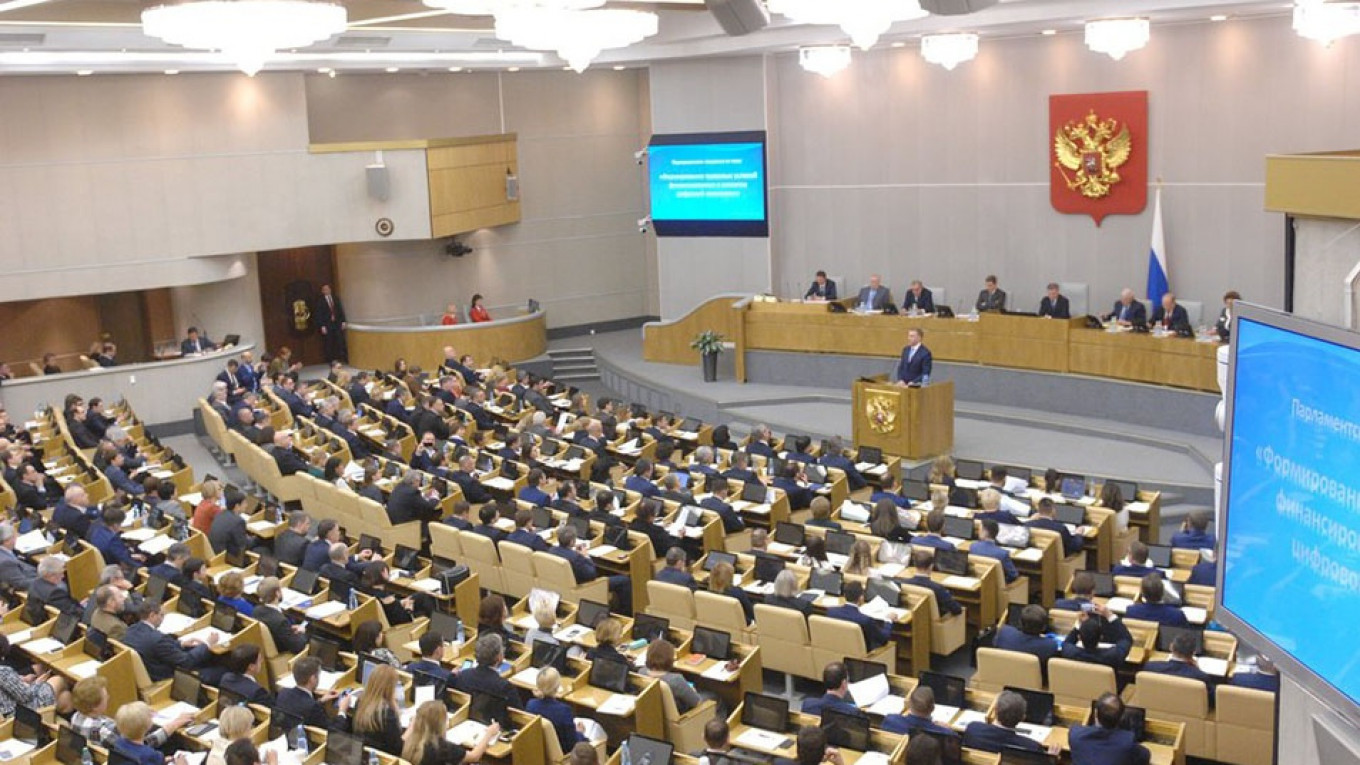Russia’s State Duma has approved legislation to soften criminal penalties for social media posts deemed “extremist” by the authorities — a measure proposed by President Vladimir Putin earlier this year.
Article 282 of Russia's Criminal Code has been used as a catch-all by the authorities in recent years to target users who post insensitive online content, including memes, on grounds that they incite racial, religious or other forms of hatred. According to the SOVA Center NGO, a total of 461 cases were opened in 2017 for violations of the article — which carry jail sentences of up to five years. The Russian president submitted a draft bill in October to partially decriminalize the offence after a series of high-profile cases this summer sparked public criticism.
Under the new legislation passed by the State Duma on Wednesday, first-time violators of article 282 will be punished with fines or administrative arrests of up to 15 days. Repeat offenders will be subject to up to five years in jail.
“[The legislation] will rule out excessively harsh punishments for reckless one-time posts or shares on the internet,” Speaker Vyacheslav Volodin said. “On the other hand, it will preserve accountability for online extremism.”
Critics have said that the new legislation fails to address the authorities’ broad application of anti-extremism laws.
“These are simply cosmetic changes to calm people down,” Damir Gainutdinov, a lead lawyer at the Agora international human rights group, told The Moscow Times after Putin submitted the legislation in October.
The legislation must be passed by the upper house Federation Council before being signed into law by President Putin — typically a formality in Russia’s legislative process.
A Message from The Moscow Times:
Dear readers,
We are facing unprecedented challenges. Russia's Prosecutor General's Office has designated The Moscow Times as an "undesirable" organization, criminalizing our work and putting our staff at risk of prosecution. This follows our earlier unjust labeling as a "foreign agent."
These actions are direct attempts to silence independent journalism in Russia. The authorities claim our work "discredits the decisions of the Russian leadership." We see things differently: we strive to provide accurate, unbiased reporting on Russia.
We, the journalists of The Moscow Times, refuse to be silenced. But to continue our work, we need your help.
Your support, no matter how small, makes a world of difference. If you can, please support us monthly starting from just $2. It's quick to set up, and every contribution makes a significant impact.
By supporting The Moscow Times, you're defending open, independent journalism in the face of repression. Thank you for standing with us.
Remind me later.






